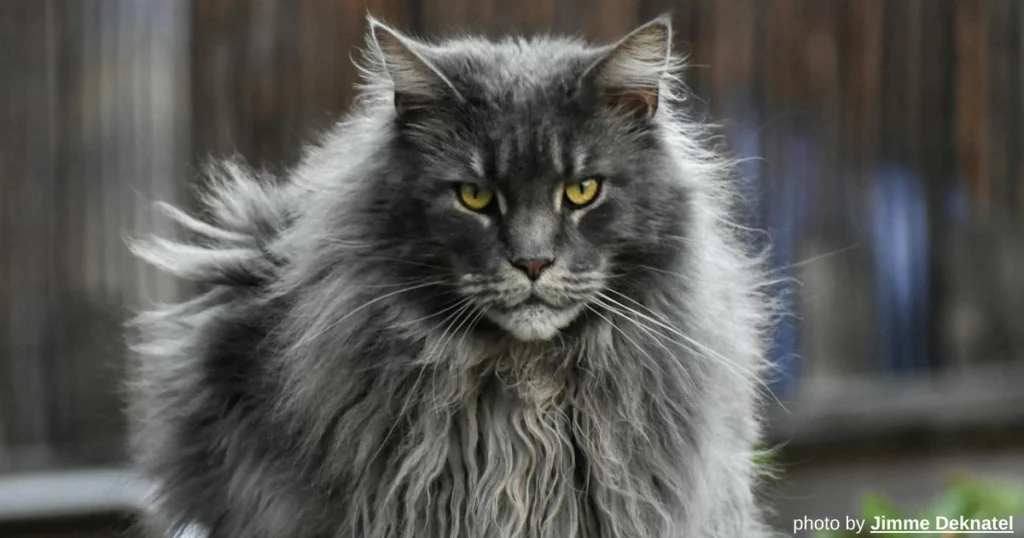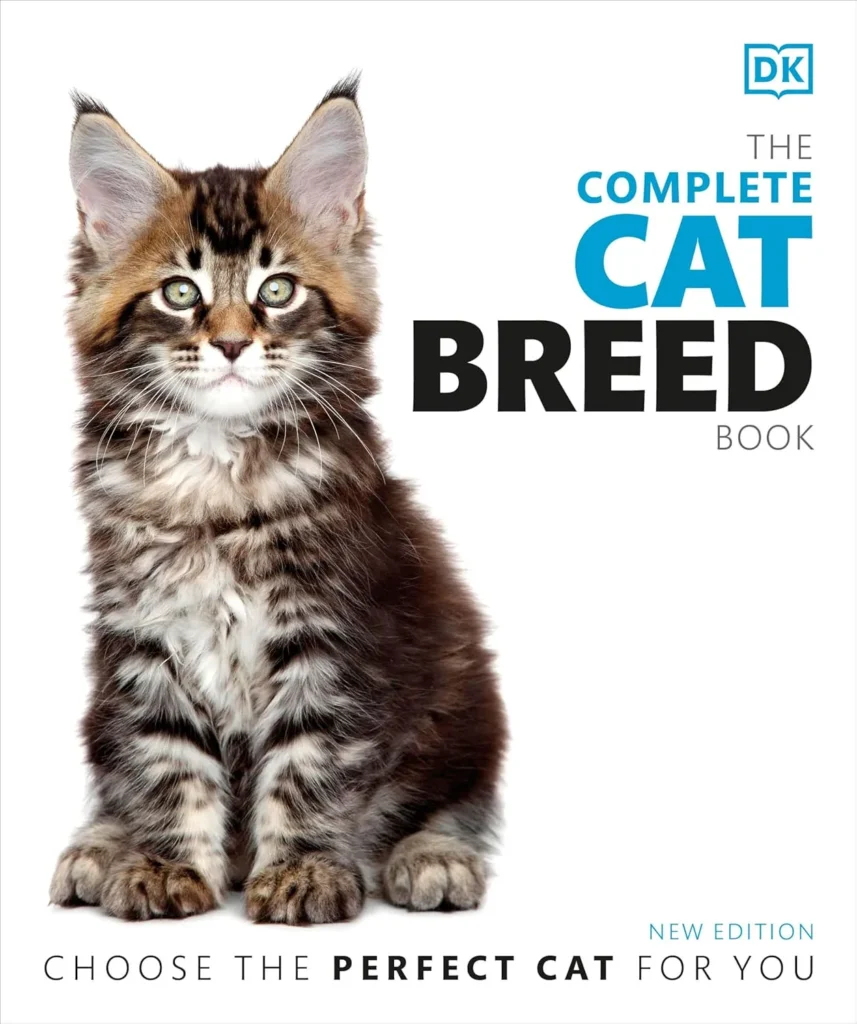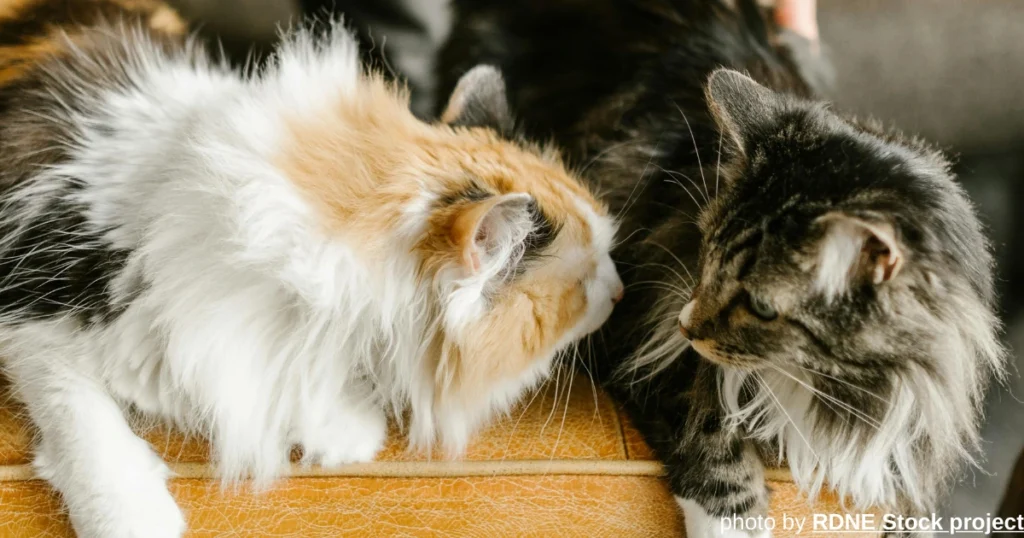Get ready to fall in love with curly-haired cats. Breeds like the Cornish Rex, Devon Rex, German Rex, LaPerm, and Selkirk Rex have wavy coats. These cats are loved for their unique looks and sweet personalities.
Their curly fur comes from special genetic changes. These changes affect how their fur grows. These cats are often good for people with allergies because their fur is less likely to cause problems. Still, it’s key to keep plants safe for them and make a cozy home.
This journey will show you the special qualities and backgrounds of these rare cats. You’ll learn how to care for them and what it means to be a responsible pet owner. Get ready to be charmed by these curly-coated cats that will capture your heart.
Introduction to Curly Hair Cat Breeds
Curly-haired cat breeds are truly unique and stand out in the world of cats. Breeds like the Cornish Rex, Devon Rex, German Rex, LaPerm, and Selkirk Rex are rare and fascinating. They have a genetic mutation that makes their fur curly or wavy, from short and soft to long and fluffy.
These cats may not shed much and are good for people with allergies. But, they need special grooming to keep their fur looking great. Cat owners must be ready to take care of these breeds to keep them healthy and happy.
- The Selkirk Rex breed was originated in the 1980s in Montana, United States, from a curly-haired kitten named Miss DePesto.
- The LaPerm breed, originating in the United States in the early 1980s, was developed from a spontaneous mutation in Oregon that resulted in curly fur.
- The Devon Rex breed was established in the 1960s in Devon, England, after finding a curly-haired kitten in a feral cat litter.
- Curly-haired cats may be prone to skin conditions such as dryness, dandruff, and seborrheic dermatitis.
Exploring curly-haired cat breeds gives us a peek into the amazing diversity of cats. Their unique looks and charming personalities make them a delight for cat lovers everywhere.
What Makes Cat Fur Curly?
Curly-haired cats are amazing pets with their wavy or coily fur. But what makes their fur curly? It’s because of their special genetic makeup and coat structure.
Genetic Mutations
Some cat breeds, like the Selkirk Rex, LaPerm, and Cornish Rex, have curly fur because of rare genetic changes. Scientists have found genes that control their fur’s shape. These changes can make their fur grow differently, often without the stiff guard hair.
Absence of Guard Hair
Without guard hair, the softer hairs can curl and wave. This gives curly-haired cats their unique look. They also shed less and might be better for people with allergies. But, they need special care to keep their fur looking good.
| Breed | Coat Characteristics | Grooming Requirements |
|---|---|---|
| Selkirk Rex | Soft, curly, and wool-like fur | Regular brushing to prevent matting and maintain coat health |
| LaPerm | Shorthair and longhair varieties with springy, curly coats | Moderate grooming needs, with occasional brushing to remove loose hair |
| Cornish Rex | Extremely soft, wavy, and almost down-like fur | Minimal grooming required, with occasional bathing to maintain cleanliness |
The special coats of curly-haired cats make them stand out. They also affect how much grooming they need and if they’re good for people with allergies. Understanding their genetics and coat structure helps us see the beauty and diversity in cats.
Cornish Rex
The Cornish Rex is a standout among curly-haired cat breeds. Its history began with a genetic mutation in Cornwall, England, in 1950. This cat is known for its soft, velvety coat and slender body. Its large, expressive eyes make it especially charming.
Breed Origins
The Cornish Rex came from a litter of barn cats in Bodmin, Cornwall. In 1950, a breeder named Nina Ennismore found a kitten with a curly coat. This kitten, named Kallibunker, started the Cornish Rex breed, recognized in the 1960s.
Unique Physical Traits
The Cornish Rex’s coat is short and curly, made of down hair. It feels like lamb’s wool. This breed is slender, weighing up to 10 pounds and reaching 18 inches long. Their agility and jumping ability are impressive.
They have large, wide-set eyes and unique facial features. These add to their captivating look.
Personality and Temperament
Cornish Rex cats are very affectionate and social. They bond strongly with their owners. They are smart, quick to learn, and love to play, making them great family pets.
They are also known for their warm touch, perfect for cuddling. Their moderate meowing and ability to get along with other pets make them wonderful companions.
“Cornish Rex cats are charming, playful, and highly intelligent, with a unique and captivating appearance that sets them apart from other feline breeds.”
Devon Rex
The Devon Rex cat breed comes from a stray in Devon, England, in the 1960s. It’s known for its short, wavy coat and large eyes. It also has a short muzzle and rounded features, earning it the nickname “the pixie cat.”
These cats are very affectionate and playful. They love to be close to their human family. They are known for their mischievous and energetic nature.
Devon Rexes are popular for their unique looks and fun personalities. They are visually striking and friendly. They make great family pets, adding joy to any home.
| Trait | Description |
|---|---|
| Coat | Short, wavy, and soft, with a poodle-like texture |
| Size | Weigh between 5-10 pounds |
| Lifespan | 9-13 years |
| Personality | Highly affectionate, playful, and mischievous |
The Devon Rex’s unique looks and personality make it a favorite in many families. It shows the wonderful variety of curly-haired cat breeds.
cats with wavy hair
In the world of cats, some stand out with their curly coats. Breeds like the Cornish Rex, Devon Rex, and Selkirk Rex have coats that are wavy or wooly. These cats have special fur due to rare genetic changes.
These cats may not shed much and could be good for people with allergies. But, they need special care to keep their fur looking good. If you want a curly-haired cat, you must be ready to take good care of it.
Understanding these curly-haired cat breeds is key. Each, like the Cornish Rex and Selkirk Rex, has its own grooming needs. Regular brushing and baths are crucial for their health and looks.
These unique feline breeds add charm to any home. If you want a cat that stands out, look into curly-haired cats. It’s a rewarding choice.
| Breed | Coat Characteristics | Grooming Needs |
|---|---|---|
| Cornish Rex | Dense, soft, and curly fur | Moderate brushing required, sensitive to low temperatures |
| Devon Rex | Soft, wavy, and almost woolly coat | Regular brushing to prevent matting and control shedding |
| German Rex | Tight, curly, and dense fur | Weekly brushing to maintain coat health and appearance |
| LaPerm | Unique, wavy, and springy coat | Moderate grooming needs, brushing a few times per week |
| Selkirk Rex | Curly, wooly, and soft fur | Regular brushing to prevent matting, sensitive to over-brushing |
“Curly-haired cats are like little bundles of joy, with their unique and endearing appearances that never fail to capture the attention of anyone who sees them.”
German Rex
The German Rex is a rare and unique cat breed. It comes from Germany, after World War II. This breed is medium-sized and has a short, wavy, and silky coat that feels like velvet.
This cat’s special look comes from a genetic change. It made the German Rex a curly-haired cat.
A Friendly and Affectionate Companion
German Rex cats are not just beautiful. They are also friendly and loving. They love being around people and enjoy playing.
These cats are rare in North America. But, they make great pets for those who can give them the care they need.

- Short, wavy, and silky coat with a velvety texture
- Height range typically between 10 to 12 inches
- Weight between 6 to 10 pounds
- Lifespan of 9 to 14 years
- Low-maintenance compared to other Rex cat breeds
Even though the German Rex is not well-known, they are special. They are perfect for those looking for a unique pet.
LaPerm
The LaPerm is a standout among curly-haired cat breeds. It originated in the 1980s in Oregon, USA. Since then, it has won the hearts of many with its unique wavy coat and loving personality.
Sweet and Attentive
LaPerms are known for their love and sociability. They bond strongly with their families. They love attention and are playful, making them great companions.
Shorthair and Longhair Varieties
LaPerms come in both shorthair and longhair types. They have soft, wavy fur that can be tight curls or long curls. Their variety in coat colors and patterns makes them visually stunning.
| Breed Characteristics | Details |
|---|---|
| Origin | Discovered in Oregon, USA, in the 1980s |
| Coat Type | Shorthair and longhair varieties with a distinctive wavy or curly texture |
| Coat Colors | Wide range, including shaded, solid, tortoiseshell, chinchilla, tabby, pointed, bicolor, smoky, and calico |
| Grooming Needs | Regular brushing, typically 1-2 times per week |
| Personality | Affectionate, sociable, and playful, forming strong bonds with their human families |
| Life Span | 10-15 years |
The LaPerm’s unique look and loving nature have made it popular. It’s a great choice for those looking for a special cat. Its curly fur and loving personality will win your heart and become a beloved family member.
Selkirk Rex
If you love the idea of a cat with a soft, curly coat, the Selkirk Rex is perfect for you. This breed is known for its wavy fur, earning it the nickname “cat in sheep’s clothing.” Found in the United States, it comes in both shorthair and longhair types, each with their own unique curls.
Laid-Back and Cuddly
Selkirk Rex cats are not just beautiful; they’re also very laid-back and cuddly. They love being close to their humans and are known for their patient and social nature. This makes them great family pets, fitting well into both busy and quiet homes.
Whether you’re drawn to their soft coat or their loving personality, the Selkirk Rex will win your heart. They offer a unique and rewarding experience as a pet, thanks to their special looks and nature.
“The Selkirk Rex is a breed that truly stands out with its remarkable curly coat and affectionate temperament. It’s no wonder they’ve become a beloved choice among cat enthusiasts.”
Grooming and Care for Curly-Haired Cats
Caring for curly-haired cats needs special grooming techniques. This depends on the cat’s coat length and density. Shorthair curly-haired breeds like the Cornish Rex and Devon Rex need little grooming. They just need occasional baths and gentle combing to keep their coats soft.
Longhair curly-haired cats, such as the LaPerm and Selkirk Rex, need more grooming. They need regular brushing and combing to stop matting and keep their fur looking great.
Brushing and Bathing Needs
When grooming these cats, owners should be careful not to pull out too much hair. Regular brushing and combing are key. They help keep the cat’s coat looking good and prevent tangles or matting.
Potential Allergy Benefits
Curly-haired cats might be less likely to cause allergies. But, owners need to understand their special grooming needs. This ensures the cat’s health and happiness. Some breeds, like the Siberian Forest Cat, have lower levels of Fel d 1 protein. This makes them a bit hypoallergenic.
| Breed | Grooming Needs | Allergy Potential |
|---|---|---|
| Cornish Rex | Minimal, occasional baths and gentle combing | Moderate to low shedding, may be somewhat hypoallergenic |
| Devon Rex | Minimal, occasional baths and gentle combing | Moderate to low shedding, may be somewhat hypoallergenic |
| LaPerm | Frequent brushing and combing to prevent matting | Moderate shedding, not considered hypoallergenic |
| Selkirk Rex | Frequent brushing and combing to prevent matting | Moderate shedding, not considered hypoallergenic |
| Siberian | Regular grooming to maintain coat health | Lower levels of Fel d 1 protein, more hypoallergenic |
Finding a Curly-Haired Cat
Exploring curly-haired cat breeds is an exciting adventure. But, finding one might take patience and effort. You can adopt or find a responsible breeder to add a curly-haired friend to your family.
Adoption Options
Local animal shelters or rescue groups might have curly-haired cats. These rare breeds sometimes need a new home. Setting up alerts on adoption websites can help you find them quickly.
Reputable Breeders
Looking for a specific curly-haired breed? Contacting reputable breeders is a good idea. But, it might take time. It’s important to research and make sure you can meet their needs.
Connecting with breed associations and cat shows can help find trustworthy breeders. They care deeply for their curly-haired cats.
Adopting or getting a curly-haired cat needs careful thought and planning. With diligence and a commitment to pet care, you can welcome a wonderful, curly-coated friend.
Conclusion
Curly-haired cat breeds like the Cornish Rex and Devon Rex are special unique feline companions. They have rare genetic traits that make their coats curly or wavy. These cats can have short, velvety or long, plush fur.
While they might shed less and be hypoallergenic, they need special care. Their grooming needs and rarity make them a big responsibility for responsible pet ownership.
If you want a curly-haired cat, you must be ready to give them the care they need. You also need to make sure your home is safe from toxic plants. Knowing what these cats need can bring joy to your life.
The charm of curly-haired cat breeds comes from their looks and personalities. They make great unique feline companions for those who are dedicated and responsible pet owners. Whether it’s the Devon Rex’s poodle-like charm or the Selkirk Rex’s cuddly nature, they offer a special and rewarding experience.
FAQ
Are curly-haired cats hypoallergenic?
Yes, curly-haired cat breeds like the Cornish Rex and Devon Rex are more hypoallergenic. They shed less and lack certain hair layers that can cause allergies. But, remember, no cat is completely hypoallergenic. People with severe allergies might still react to these breeds.
What are the unique physical traits of curly-haired cats?
Curly-haired cats, including the Cornish Rex and Devon Rex, have wavy or curly coats. Their fur can be short and velvety or long and plush. These traits come from rare genetic mutations that affect their hair growth and structure.
How do I care for a curly-haired cat?
Curly-haired cats need special grooming. Shorthair breeds like the Cornish Rex and Devon Rex need occasional baths and gentle combing. Longhair breeds like the LaPerm and Selkirk Rex need more brushing to prevent matting. Always be gentle when grooming to avoid pulling out too much hair.
Are curly-haired cats good for families?
Yes, many curly-haired cat breeds are great for families. They are affectionate, playful, and enjoy being part of the household. Just make sure children treat them gently and the cat has a safe, enriching environment.
How can I find a curly-haired cat?
Finding a curly-haired cat can be a bit hard because they are rare. You can adopt from shelters or rescue groups or contact reputable breeders. Always do your research and find a responsible source to meet these cats’ unique needs.

The Complete Cat Breed Book, Second Edition (DK Definitive Pet Breed Guides)

